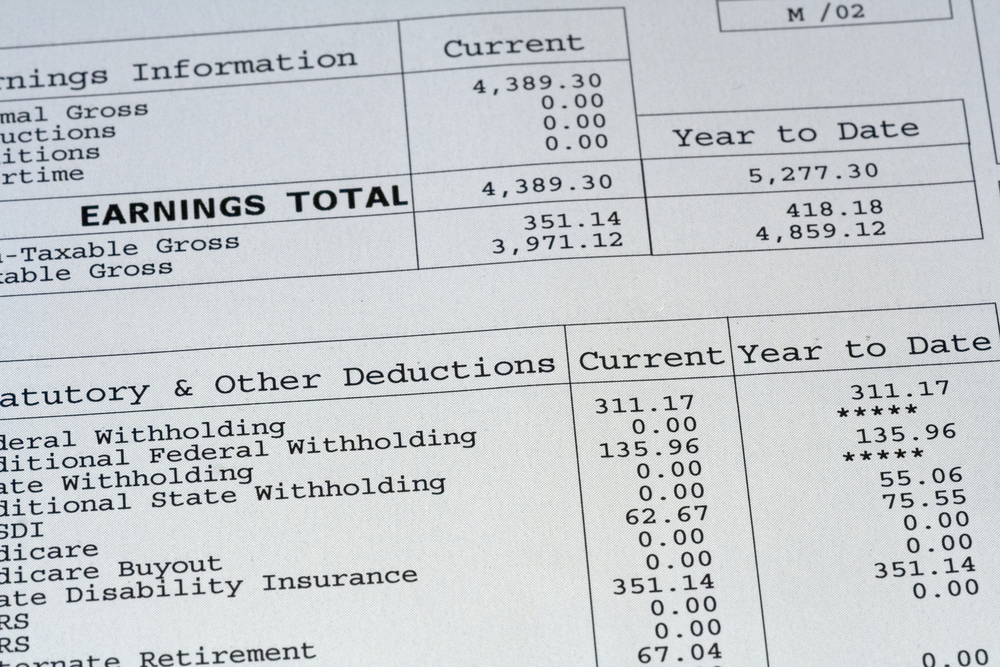On July 3, 2019, California governor Gavin Newsom signed the Crown Act into law, making California the first state to ban discrimination based on Natural Hair.
Newly Crown’d: California Becomes First State to Ban Discrimination Based on Natural Hair



On July 3, 2019, California governor Gavin Newsom signed the Crown Act into law, making California the first state to ban discrimination based on Natural Hair.

We are halfway through 2019, and while many employees prepare for summer vacation, California employers in various cities should brace themselves for an additional round of minimum wage increases on July 1, 2019.
Another raise, already?
As you may recall, on January 1, 2019, California raised the statewide minimum wage rate to $12.00 per hour for employers with 26 or more employees, and $11.00 per hour for employers with 25 or fewer employees. And the California minimum wage is set to increase to $15.00 per hour for all employers by January 2023. READ MORE

The battle between Dynamex and Borello continues. Two competing bills – Assembly Bill 5 (“AB 5”) and Assembly Bill 71 (“AB 71”) – each seek to codify the respective worker classification tests. On May 29, 2019, the California State Assembly overwhelmingly passed AB 5, a bill seeking to codify Dynamex Operations West, Inc. v. Superior Court of Los Angeles, which adopted the three-factor “ABC” test to determine a worker’s classification for wage order claims. Now the bill is headed to the state Senate. Meanwhile, AB 71, a bill seeking to codify S.G. Borello & Sons, Inc. v. Dept. of Industrial Relations, has thus far not enjoyed the same success. READ MORE

In tandem with the growing #MeToo movement, sexual harassment appears to be top of mind for California legislators in 2018. In the wake of Harvey Weinstein, Bill Cosby and the like, California has been flooded with an unprecedented number of bills aimed at combatting sexual harassment. The 20+ pending bills take on topics ranging from confidentiality provisions to increased mandatory harassment training. Now more than ever, employers must pay heed to how sexual harassment issues are handled at their companies. Here are the highlights from the top 10 bills that – if passed – will most likely impact employers:
Senate Bill 820 would prohibit settlement agreement provisions that prevent the disclosure of facts related to claims of sexual assault, sexual harassment or sex discrimination cases. Otherwise known as the STAND (Stand Together Against Non-Disclosures) Act, the bill would apply to agreements entered into after January 1, 2019 and would create an exception where a complainant requests a nondisclosure provision (unless the defendant is a government agency or public official, in which case the exception would not be available). The STAND Act passed the Senate Judiciary Committee on May 1, 2018 with a vote of 5-1, and is now headed to a full vote in the Senate. Assembly Bill 3057 contains similar prohibitions, and is currently in the Assembly Appropriations Committee. READ MORE

As California goes, so goes the nation. When it comes to employment law, the Golden State is continuing down a path of increased regulation. With 2017 right around the corner, here are some new laws California employers must prepare for – all effective Jan. 1, 2017 unless otherwise stated: READ MORE

A few months ago, the California State Assembly introduced AB 1676, a bill that not only would have prohibited employers from asking job applicants about their compensation history, but also would have required employers to provide pay scale information upon reasonable request. A nearly identical bill passed through the Assembly and Senate before it was vetoed by the Governor toward the end of last year. In his veto statement, the Governor expressed concern that such a measure “broadly prohibits employers from obtaining relevant information with little evidence that [it] would assure more equitable wages.”
As we previously reported, the Fair Pay Act (the “FPA,” Labor Code § 1197.5) requires “equal pay for substantially similar work” based on the employee’s skill, effort and responsibility, and similar working conditions. To the extent a disparity exists between employees of the opposite sex, it must be reasonably based on one or more the factors enumerated within the statute.
Perhaps hoping to avoid repeating history, proponents of AB 1676 have taken a new approach. In place of the provision prohibiting inquiries about prior salary history is new language that amends the FPA to state that “[p]rior salary shall not, by itself, justify any disparity in compensation.”

Plaintiff Lynne Coates filed a class action lawsuit against Farmers on April 29, 2015 alleging gender discrimination claims under Title VII and California’s Fair Employment and Housing Act, including violations of the federal and California equal pay acts and California’s Private Attorneys General Act. In this post on Orrick’s Equal Pay Pulse blog, Orrick attorneys Erin Connell, Allison Riechert Giese and Megan Lawson examine Coates v. Farmers and what it means for employers as well as future equal pay claims in California.

In an issue of first impression, the California Court of Appeals held that employers have a duty under California’s Fair Employment and Housing Act (FEHA) to provide reasonable accommodations to an applicant or employee who is associated with a disabled person, even if the employee is not disabled. Castro-Ramirez v. Dependable Highway Express, Inc. No. B261165, 2016 Cal. App. LEXIS 255 (Cal. Ct. App. April 4, 2016). This holding confirms that FEHA provides broader protections for employees associated with a disabled person than the federal Americans with Disabilities Act (ADA), which does not contain the same requirement.

In what could prove a harbinger of worker classification developments to come, Assembly Member Lorena Gonzalez (D – San Diego) has proposed AB 1727, “The California 1099 Self-Organizing Act.” The bill, which is at the earliest stages of the legislative process, would provide an avenue for certain workers classified as independent contractors to engage in “group activities” including organizing, bargaining, and striking. At bottom, the legislation would give certain independent contractors the ability to collectively confront those with whom they contract.

The U.S. Department of Labor (DOL) sent its much anticipated final overtime regulations to the Office of Management and Budget (OMB) for review on March 14, 2016. Technically, this move came slightly ahead of schedule. OMB now has 90 days to review, which would put its “due date” in mid-June – ahead of the July regulatory agenda publication date we previously reported. However, as these overtime regulations are a top-line priority subject to intense political scrutiny, there is reason to believe OMB may not complete its review within the 90-day window.